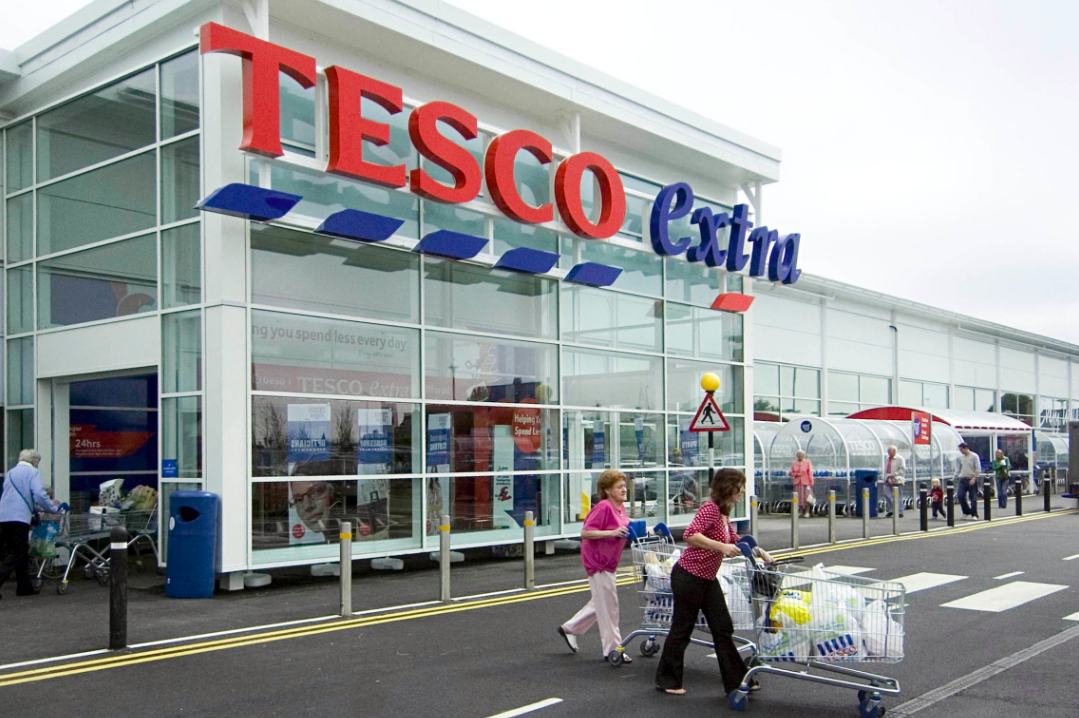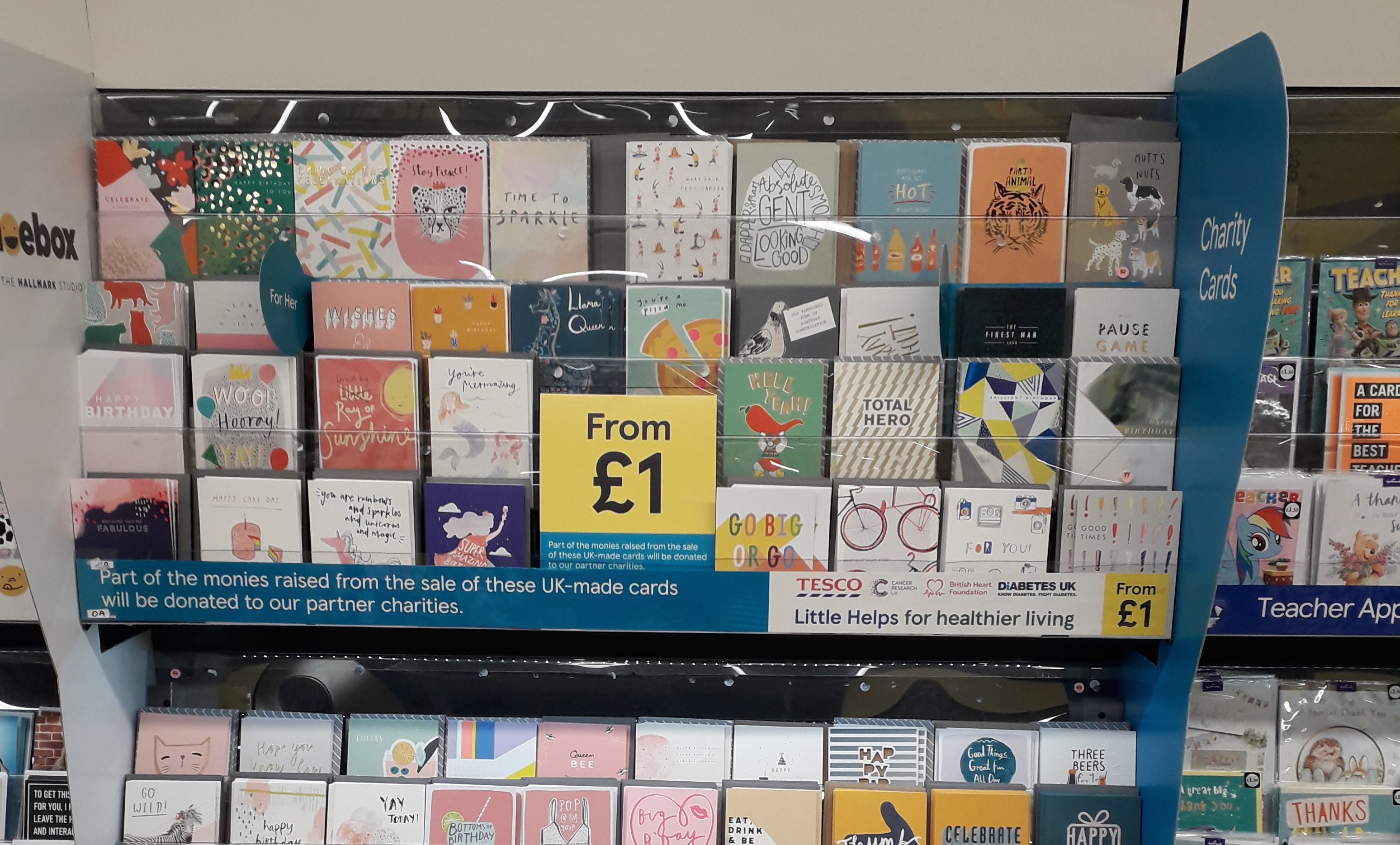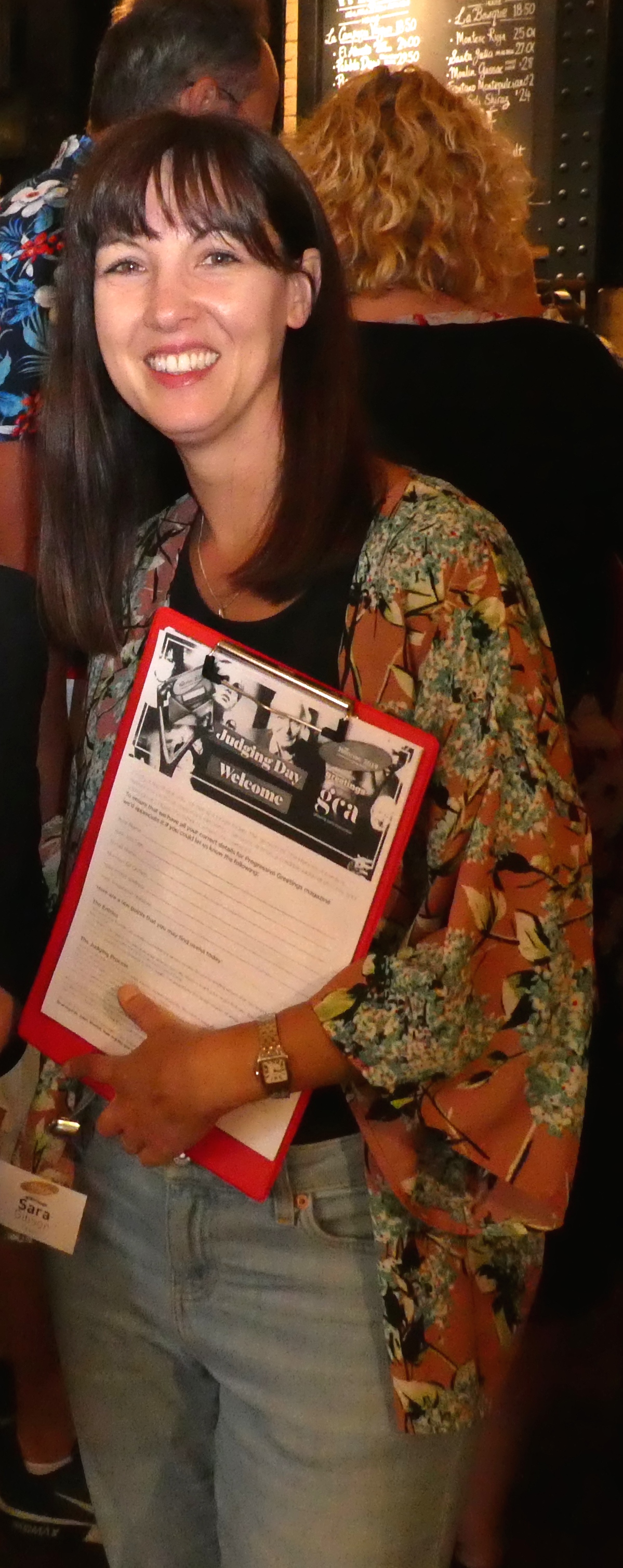Tesco has pledged to remove one billion pieces of plastic from products by the end of 2020 – and greeting cards form part of that tally.
As part of the grocer giant’s quest to reduce its environmental impact, the supermarket says it is to remove 200 million wrappers, including those used to pack greeting cards and clothing. Tesco is also to stop using small plastic bags, currently used to pack loose fruit, vegetables and bakery items. These will be replaced with paper ones. It is also remove plastic trays from ready meals, secondary lids on products such as cream and yoghurt, sporks and straws from snack pots and drinks cartons.

Sending out a message to its greeting card publishers Tesco has informed all suppliers that it reserves the right to no longer stock items that use excessive or hard-to-recycle materials.
Tesco made a big statement in the summer about the direction it wants to take on the card front, with the launch of a new everyday card collection. The bespoke card collection has high eco-credentials as the cards are sold ‘naked’, feature no glitter and are printed in the UK on board that is either 100% or 50% recyclable.

The sale of the cards support of three health charities – Cancer Research UK, British Heart Foundation and Diabetes UK with Tesco pledging to donate £100,000 to the three charities under the grocer’s banner ‘Little Helps for healthier living’.
Tesco chief executive Dave Lewis states: “Our work to ‘Remove, Reduce, Reuse & Recycle’ is already transforming our packaging. Over the next 12 months, we will remove one billion pieces of plastic, further reducing the environmental impact of the products we sell. The grocer’s standpoint has received encouragement from environmental campaign charity, Greenpeace.

Louise Edge, head of Greenpeace UK’s ocean plastics campaign, said: “Tesco is absolutely doing the right thing in looking to reduce the number of pieces of plastic packaging it produces. When supermarkets focus solely on reducing their packaging by weight, this can trigger a policy of light-weighting – meaning packaging gets thinner or smaller, but still exists as a throwaway item that can pollute our waterways and harm marine wildlife.”
As Louise highlights last year Tesco produced more than 18 billion pieces of plastic, “so they’ve still got plenty of work to do, but this is a good start and we hope to see further reductions when it introduces its reusable packaging scheme for online orders in the New Year.”
Top: Tesco has made ‘Remove, Reduce, Reuse & Recycle’ its mantra across all manner of products, from greeting cards to bananas.





















